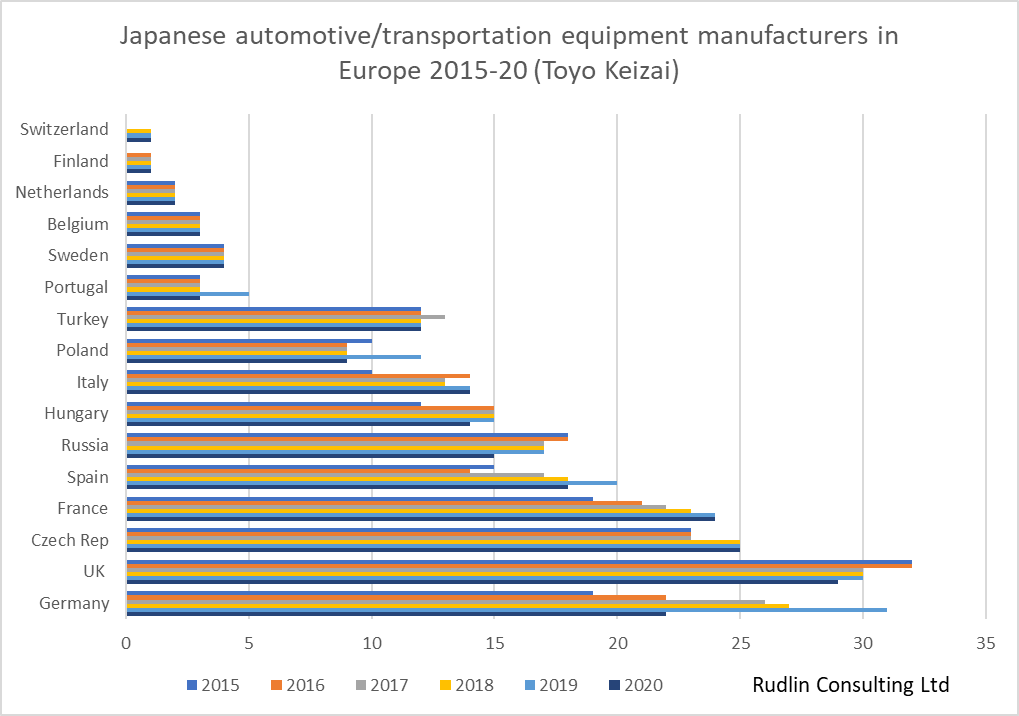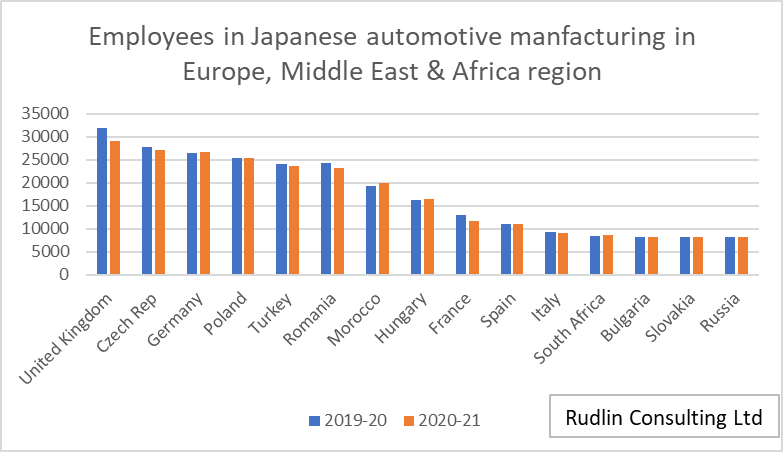Top earning foreign executives at Japanese companies in 2021
Seven out of the ten best paid executives in Japan are not Japanese, according to Tokyo Shoko Research. It’s been more than ten years since Japanese companies were obliged to disclose the details of executives earning more than ¥100m (around $900K) and was cited as one of the reasons that Nissan got themselves into such a twist about their CEO Carlos Ghosn’s pay.
No Nissan executives appear in the Top 30 this year, unsurprisingly. The number of executives paid over ¥100m has risen for the first time in two years, and Hitachi has the most – with 15 executives including the British head of the rail division, Alistair Dormer. Dormer is not, however, being paid more than his Japanese boss, Mr Higashihara, although this has happened in the past at companies such as NSG.
The financial group MUFG has 11 executives earning over ¥100m and Mitsui, the trading house conglomerate and Daiwa Securities both have 9. Tokyo Electron and SoftBank both have 8 executives earning over ¥100m. SoftBank’s Simon Segars, British CEO of ARM is the highest paid executive of a Japanese company, earning ¥1,880m (around $17m) and SoftBank’s COO Marcelo Claure is the third highest paid, with SoftBank’s Rajeev Misra, Ronald Fisher, Miyauchi Ken and Goto Yoshimitsu at #6, #7, #12 and #21 respectively.
FANUC, Daikin, Toyota Motor, LIXIL, Sony, ENEOS and Mitsubishi Electric all have 7 executives earning more than ¥100m. I would be surprised if the latter was in the rankings next year, however, given its current difficulties.
Other high earning foreign executives include Christophe Weber at #2 and two other executives at Takeda Pharma, Didier Leroy at Toyota Motor (#4) , Bijoy Mohan at LIXIL (transferred with LIXIL’s Grohe acquisition) and Stefan Kaufman at Olympus.
So if you want to be a high paid foreign executive at a Japanese company, work for a Japanese company that has a high proportion of its business overseas either through organic growth (Toyota) or more likely through acquisition – Hitachi Rail, Takeda, LIXIL, Olympus, SoftBank.
For more content like this, subscribe to the free Rudlin Consulting Newsletter. 最新の在欧日系企業の状況については無料の月刊Rudlin Consulting ニューズレターにご登録ください。
Read More LinkedIn
LinkedIn YouTube
YouTube
 The recent news about Nissan and its Chinese battery manufacturing partner Envision deciding to go ahead with expanding the battery plant in Sunderland, to supply a new electric vehicle model, led me to revisit my researches on trends on the Japanese automotive sector in the Europe, Middle East and Africa region. I
The recent news about Nissan and its Chinese battery manufacturing partner Envision deciding to go ahead with expanding the battery plant in Sunderland, to supply a new electric vehicle model, led me to revisit my researches on trends on the Japanese automotive sector in the Europe, Middle East and Africa region. I  So the UK still has the most employees of Japanese automotive manufacturers in the region, but the number of employees has dropped below 30,000 for the first time in five years. The Czech Republic, Germany and Poland are not far behind in terms of employee numbers, and it’s possible Germany still does have more Japanese automotive related manufacturers than the UK, it’s just that they have chosen not to classify themselves as being in the automotive sector. The closure of Honda Swindon and other suppliers to the Swindon plant this month will probably result in the UK losing its top spot both in terms of employees and companies hosted.
So the UK still has the most employees of Japanese automotive manufacturers in the region, but the number of employees has dropped below 30,000 for the first time in five years. The Czech Republic, Germany and Poland are not far behind in terms of employee numbers, and it’s possible Germany still does have more Japanese automotive related manufacturers than the UK, it’s just that they have chosen not to classify themselves as being in the automotive sector. The closure of Honda Swindon and other suppliers to the Swindon plant this month will probably result in the UK losing its top spot both in terms of employees and companies hosted.